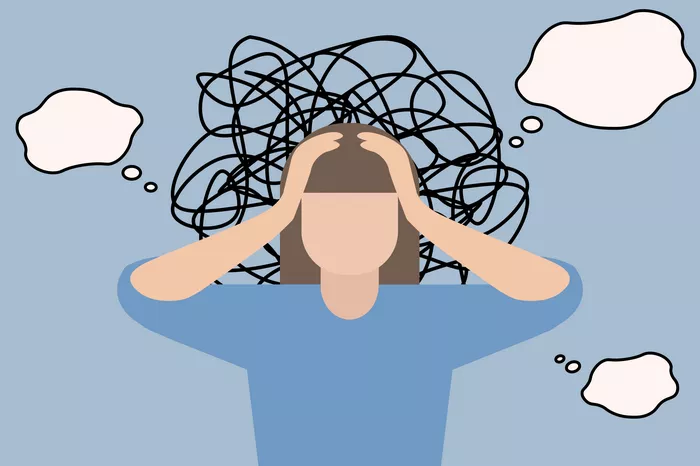What is a good mild depression medication? This question is at the forefront of discussions surrounding mental health, as individuals seek effective and well-tolerated solutions to alleviate symptoms of mild depression. The complexities of mental health make it imperative to explore various treatment options, considering factors such as efficacy, safety, and potential side effects. In this comprehensive article, we delve into the realm of mild depression medications, examining the characteristics that make them suitable, the drug of choice, the prevalence of side effects, and the safety of long-term antidepressant use.
Understanding Mild Depression
Before exploring medication options, it is essential to grasp the nature of mild depression. Often characterized by persistent feelings of sadness, fatigue, and a diminished interest in daily activities, mild depression falls on the lower end of the depressive spectrum. Individuals experiencing these symptoms may find it challenging to cope with life’s demands but can often function relatively well in their daily lives. Recognizing the nuances of mild depression is crucial in selecting appropriate treatment modalities.
See Also:Mild Depression: Treatment and Self-Care
What Is a Good Mild Antidepressant?
The quest for an effective mild depression medication has led to the development and utilization of various antidepressants. Selective serotonin reuptake inhibitors (SSRIs), such as fluoxetine (Prozac) and sertraline (Zoloft), are commonly prescribed due to their ability to enhance serotonin levels in the brain, promoting a more stable mood. Another class of antidepressants, serotonin-norepinephrine reuptake inhibitors (SNRIs) like venlafaxine (Effexor), work on both serotonin and norepinephrine, offering an alternative for those who do not respond well to SSRIs.
Exploring the Drug of Choice for Mild Depression
While numerous antidepressants exist, identifying the drug of choice for mild depression requires a personalized approach. Escitalopram (Lexapro), a type of SSRI, is often considered a first-line treatment due to its favorable side effect profile and efficacy in managing mild depressive symptoms. Additionally, bupropion (Wellbutrin), an atypical antidepressant, stands out for its unique mechanism of action and lower risk of sexual side effects, making it a preferred option for some individuals.
Examining Side Effects: What Antidepressant Has the Least?
Concerns about side effects are a common consideration when choosing a mild depression medication. Each class of antidepressants carries its own set of potential side effects, ranging from mild to severe. Bupropion, for instance, is associated with minimal sexual side effects, making it an attractive option for individuals with concerns in this area. However, it is crucial to note that the response to medication varies among individuals, and what works well for one person may not be suitable for another.
Navigating the Safety of Long-Term Antidepressant Use
The question of whether it is safe to stay on antidepressants for life is a significant consideration for individuals managing mild depression. Research indicates that long-term use of antidepressants is generally safe, with many individuals experiencing sustained benefits without adverse consequences. However, ongoing monitoring by healthcare professionals is essential to assess the ongoing need for medication, adjust dosages, and address any emerging concerns.
Considering Alternative Therapies and Lifestyle Changes
In addition to pharmacological interventions, alternative therapies and lifestyle changes play a crucial role in managing mild depression. Psychotherapy, such as cognitive-behavioral therapy (CBT), can provide valuable tools for coping with depressive symptoms. Furthermore, incorporating regular exercise, a balanced diet, and sufficient sleep can contribute to overall well-being and complement the effects of medication.
Addressing Concerns About Withdrawal and Dependency
As individuals contemplate the long-term use of antidepressants, concerns about withdrawal and dependency may arise. It is important to work closely with healthcare providers when discontinuing medication to minimize the risk of withdrawal symptoms. Gradual tapering, under medical supervision, can help manage any potential challenges associated with discontinuation.
Monitoring Progress and Adjusting Treatment Plans
Effective management of mild depression involves a dynamic and collaborative approach between individuals and their healthcare providers. Regular monitoring of symptoms, medication efficacy, and potential side effects is crucial for making informed decisions about treatment plans. Open communication with healthcare professionals ensures that adjustments can be made promptly to optimize the therapeutic outcomes.
Conclusion
In the pursuit of a good mild depression medication, individuals are presented with various options, each carrying its own set of benefits and considerations. The decision-making process involves a thoughtful assessment of individual needs, preferences, and the overall response to treatment. By exploring the nuances of different antidepressants, addressing concerns about side effects and long-term use, and considering alternative therapies, individuals can work towards finding a comprehensive and effective approach to managing mild depression. It is essential to remember that seeking guidance from healthcare professionals and maintaining open communication are integral components of the journey towards mental health and well-being.
Related Topics:
What Is the Clinical Depression Symptoms in Elderly?
9 Depression Symptoms to Look Out For
Why Do People Experience Feeling Sad at Night?


